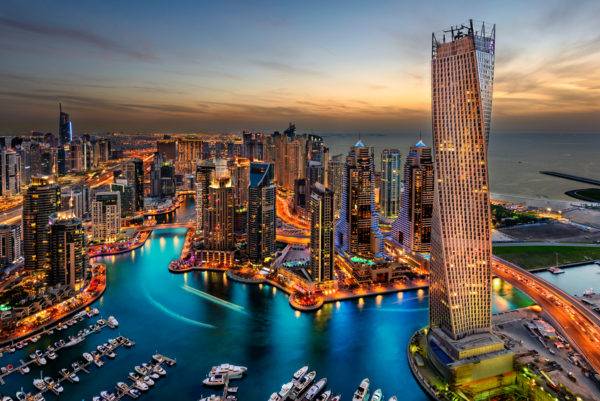Persian Gulf metropolis Dubai is ramping up its long-running smart city strategy to capitalize on emerging opportunities in a market worth trillions of dollars.
While many municipal governments around the globe are only now beginning to explore smart city projects, Dubai is more than a decade into its smart city strategy. Trade Arabia says the largest city in the United Arab Emirates is now in the process of shifting into Phase Two of its expansive smart city strategy.
The city wrapped up Phase One of its smart city plans this spring. One part of that phase was the Smart Dubai Government initiative, which has already saved the government $1.17 billion in its 13 years of existence.
As part of Phase Two, the new Smart Dubai Office (SDO) will take over this initiative as well as the Dubai Data initiative. The SDO will incorporate these projects into its Happiness Agenda for the city which it announced this May. This project will guide Dubai’s smart city transformation with a methodical, science-based approach to improving the urban area’s overall happiness.
A key component of the Happiness Agenda is the Happiness Metre, which contributes to cutting-edge benchmarking processes that are widely used by private and public sectors in the city.
“Smart Cities are rising throughout the world, but governments and industry need to agree on what actually makes a city smart,” said Palo Alto City’s chief information officer Jonathan Reichental, who is slated to speak at Dubai’s Gitex conference this fall. “Dubai’s efforts to develop global benchmarks will help cities measure their progress, so that leading innovators, from Silicon Valley to Dubai to Bangalore, can deploy practical tools to measure how they’re improving people’s lives.”
Dubai knows benchmarking is critical
Smart Dubai director general Aisha Bin Bishr said that benchmarking was an integral part of the such smart city projects as The Happiness Metre, the Dubai Data Portal and the Smart Dubai Platform.
“After spending over two years working on benchmarking, creating a blue print, building the framework and testing services on a government level, we are now working on delivering tangible benefits to the residents and visitors of Dubai,” he said.
Dubai is pushing forward into further Internet of Things (IoT) integration, embracing the burgeoning technology that is expected to generate $1.6 trillion in smart cities impact by 2025. A recent McKinsey Global Institute report predicts these IoT impacts will include $800 billion in transportation opportunities and $700 billion in healthcare.
Yet despite the global buzz around the topic of smart cities, concerns are mounting that many smart city initiatives are focusing on solving peripheral urban problems, with few big projects tackling core city issues.


















